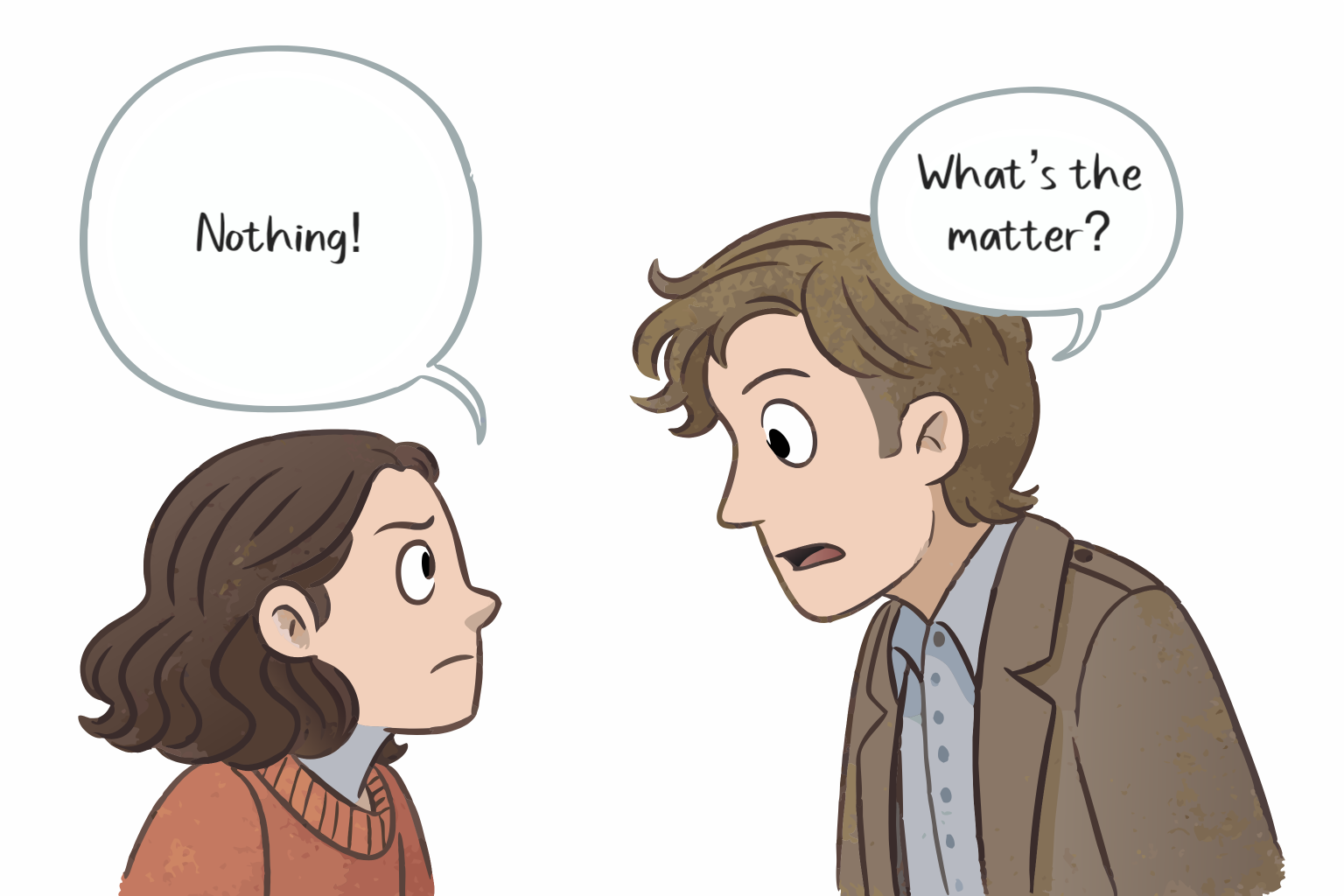
James and Clara lived together in quiet harmony, until one day, Clara stopped speaking to James.
After a few days of silence, James finally approached her and asked,
"What's the matter?"
"Nothing," Clara replied, staring off into the distance.
James sighed, realizing what every husband eventually learns.
When a wife says "nothing," it always means "something."
The Search for Meaning
If I have to recall the first time I seriously thought about this whole "How the creation happened?" thing. It was when I was a teenager, and at the time, the idea of nothingness seemed totally ridiculous to me. Like, how could a complex universe, filled with stars, planets, life, and all these intricate systems, come from nothing? The very concept of "nothing" felt impossible, almost stupid, because obviously, I thought, only something can come from something (Basically only form can give rise to form). But then with time I began to wonder, what if it's the exact opposite? What if this nothingness is what allows things to exist? Maybe the void itself, the space we assume is empty, is the very reason something can exist. It’s kind of like how silence makes music possible or how a blank canvas allows art to be created. Then, the deeper I dug into this question, the more I realized that neither idea seemed to fully make sense on their own. Then I came to the third reasoning which is "only thing that can come from nothing is actually nothing". And what that means is that the "nothing" is, in fact, not the qualityless, voide, empty kind of "nothing". It's more of full, filled with qualities like "nothing" which is beyond our perception. And therefore, something must be made of "nothing" which is again "something" (which appears "nothing")—a paradox that challenges our logical understanding. So it led me kind of to a full circle but in a different way. This whole line of questioning just spiraled into one realization after another: maybe our concepts of something and nothing are too limited, and reality is much more fluid than we understand. It’s like trying to explain the ocean by looking at a drop of water—you’re missing the bigger picture.
Three Perspectives of Creation in Advaita Vedanta
Advaita Vedanta is a non-dualistic school of Hindu philosophy that emphasizes the unity of the individual self (Atman) and the ultimate reality (Brahman). Rooted in the Upanishads, the foundational texts of Vedanta, it focuses on understanding the nature of existence, consciousness, and liberation.
Advaita presents three major perspectives on the nature of creation.
Ajāti Vāda (No Creation):
In the ultimate view of Advaita Vedanta, there was never any real creation at all. This idea, known as Ajāti Vāda, asserts that everything we perceive as the universe is an illusion. Brahman, the ultimate reality, is beyond space, time, and form. From this vantage point, nothing was ever "created" in the sense we typically understand. The universe as we experience it is an illusion brought about by our ignorance. In essence, nothing ever truly happened, and Brahman simply is.
Sṛṣṭi-Dṛṣṭi Vāda (Creation Precedes Perception):
For many, starting from a world that we observe and interact with every day, the idea of no creation seems difficult to grasp. So, Advaita also offers the perspective of Sṛṣṭi-Dṛṣṭi Vāda, where creation exists first and is later perceived by individuals. According to this view, Ishvara (God) creates the universe, and then we, as sentient beings, perceive it. It aligns with how we experience the world: we see, touch, and feel things that we believe are already there. This model allows for the apparent reality we live in while pointing out that it's still not the ultimate truth.
Dṛṣṭi-Sṛṣṭi Vāda (Perception Creates Reality):
The third perspective suggests that perception and creation happen simultaneously. In other words, the act of perceiving something brings it into existence. This idea aligns closely with the subjective idealism of some Western philosophies or even modern interpretations of quantum mechanics, where observation affects reality. In this view, reality isn't a pre-existing thing that we encounter but is created in the very moment we observe it. The world you see exists because you see it, and as you stop perceiving, it ceases to exist.
As we reflect on this timeless question of existence, I'm reminded of the closing lines of Michael Shepherd's poem:
go to sleep with this question on your lips,
wake with this question in your mind;
and though you will never find the answer,
one day the question shall cease to be a question
and become the song which you have always known.
(In The Spirit Of Rumi - 23)
For me, this question is less about finding a definitive answer and more like a Zen koan—a paradoxical riddle that serves as a pointer, guiding the mind beyond itself into deeper awareness. It's not a problem to be solved but an invitation to shift perspectives.
The Bhagavad Gita, translates to "The Song of the Lord" or "The Divine Song" reflects this beautifully. It’s not titled "The Ultimate Answer" or "The Final Truth," but a song—a timeless melody that resonates beyond the intellect, urging us to experience existence rather than define it. This resonates with my journey, where the question of existence feels like a living mystery rather than a puzzle.
For me, the heart of this inquiry lies in transformation, not resolution. The act of questioning itself has reshaped my view of life, like a melody that evolves with every note. When we stop demanding fixed answers from a reality that transcends logic, the question transforms—it ceases to be a demand and becomes a doorway to something more profound. It’s a realization that perhaps the deepest truths of existence aren't meant to be answers but reminders of something we've always known—a song that softly calls us back to ourselves.